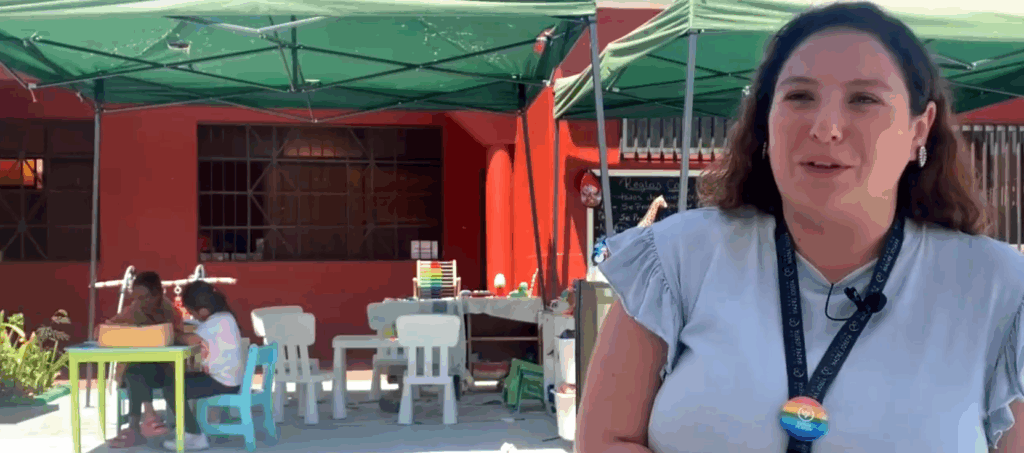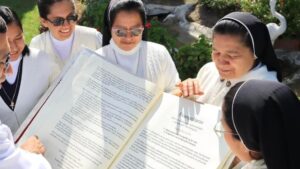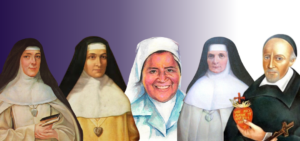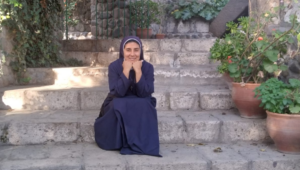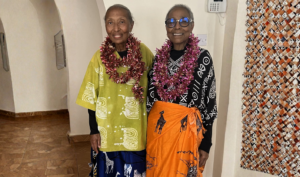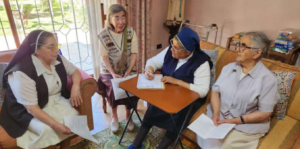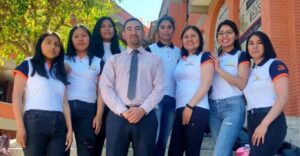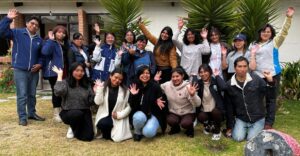Adapted from an article published by the Communications Centre for the Province of Bolivia / Chile
Each year on June 20, we honor World Refugee Day, a moment to reflect on the resilience of refugees and asylum seekers who face perilous journeys in search of safety and dignity. For humanitarian organizations like the Good Shepherd’s Fundación Madre Josefa*, this day symbolizes a renewed commitment to safeguarding rights and advocating for those navigating extraordinary hardship.
Yet, in Chile’s northern regions, refugees and migrants are increasingly encountering policies that prioritize border security over humanitarian needs. The Chilean government has enforced stricter migration controls recently, including shutting down six shelters for irregular migrants in the border town of Colchane. Additionally, a new approach of immediate returns to Bolivia for unauthorized border crossings has significantly curtailed access to humanitarian assistance. This shift reflects a broader migration strategy that focuses on territorial control but raises critical concerns.
Amid these evolving dynamics, Fundación Madre Josefa continues to shepherd the way to safety for many who are lost and seeking refuge. Led by Karina Fauste, Director of the Migrant Assistance Center in Iquique, the foundation adapts its mission to address the pressing needs of displaced families. Their work is particularly meaningful at a time when new migration protocols challenge access to basic support systems.
The foundation offers a comprehensive daytime center for migrants and their families. “We operate as a sanctuary where families can participate in workshops, access recreational activities, and receive educational guidance,” says Fauste. Mental health support, particularly psychological first aid, remains central to their services, reflecting the foundation’s deep empathy for migrants who often arrive in precarious physical and emotional states.
However, Fundación Madre Josefa’s commitment goes beyond immediate relief. They offer longer-term solutions, such as developing migration plans tailored to new national and international agreements, ensuring families chart pathways for stability. Even as the Chilean government scales back official housing support, the foundation continues to pursue initiatives to secure temporary accommodations for homeless migrants.
For families like Indiana García’s, whose arduous trek across the high-altitude plains nearly overwhelmed her two-year-old daughter, access to such services can be lifesaving. Many displaced individuals describe harrowing journeys into Chile, where near-zero temperatures and complex border crossings exacerbate the risks. Testimonies, such as those from Roberto, a young Venezuelan man forcibly returned to Bolivia after entering the country without authorization, illustrate the deepening vulnerabilities under these new policies.
Despite the challenges, Fundación Madre Josefa identifies ways to support at-risk migrants, urging the government to rethink aspects of its migration laws. The foundation continues to collaborate with local schools and community programs, including workshops held in Talca on securing residency for migrant teenagers, emphasizing the principle of the child’s best interest.
On World Refugee Day, Fundación Madre Josefa’s mission highlights an essential truth: a compassionate society balances security with humanity. Fauste and her team remind us that every policy decision affects the real lives of families, mothers, and children forced to leave everything behind in pursuit of safety.
This June 20, as global attention focuses on the plight of refugees, the foundation invites others to share in this Good Shepherd mission. “We cannot turn away,” Fauste asserts, “because every individual deserves to be seen, supported, and empowered.” This World Refugee Day, Fundación Madre Josefa urges communities to join in defending fundamental rights, not just in words but in tangible, life-changing action.
*Fundación Madre Josefa is named in honor of Venerable María de San Agustín—born still known today in the Congregation as Josefa Fernández Concha (1835–1928)—a Chilean Good Shepherd Sister and tireless missionary who had a special connection with Saint Mary Euphrasia. She is credited with establishing 35 foundations throughout Latin America, all marked by heroic zeal and often established with nothing more than God’s providence and the relentless poverty of the neighborhoods they served. She spent time in each of these communities, sharing in their hardships and the many difficult challenges of those early days. Read more about Vulnerable Josefa Fernández Concha here.
Read the original source of the article in the electronic newsletter Encuentro, founded in 2001 and published monthly by the Communications Centre of the Province of Bolivia / Chile.
